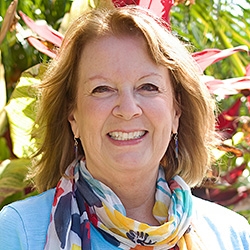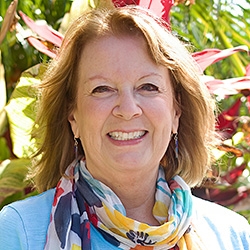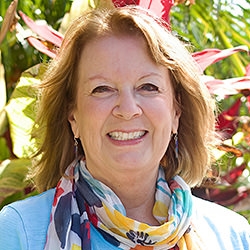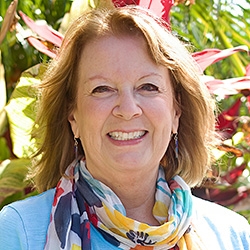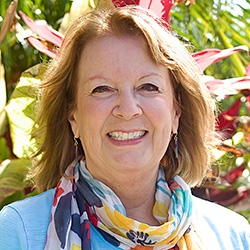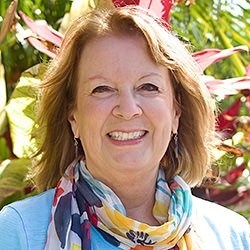

Search Results: compassion
-
Observation is the awareness of our sensory perceptions and thoughts, separate from evaluations and judgments. Feeling involves bodily sensations and emotions, distinct from "faux feelings" that mix thought and emotion. Needs encompass universal human requirements for survival and wellness, while thoughts and evaluations express needs. Requests are rooted in connection and invite true willingness, rather than demanding compliance.
-
Observation is the awareness of our sensory perceptions and thoughts, separate from evaluations and judgments. Feeling involves bodily sensations and emotions, distinct from "faux feelings" that mix thought and emotion. Needs encompass universal human requirements for survival and wellness, while thoughts and evaluations express needs. Requests are rooted in connection and invite true willingness, rather than demanding compliance.
-
-
Join Susan Skye as she guides you to experience profound transformation of the inner jackal messages resulting from childhood trauma. Discover how the limbic system of the brain works, and transform jackal messages stored there with compassionate connection.
-
Trainer Tip: Mary offers 3 foundational tips for making requests: positivity, specificity and doability.
-
Ask the Trainer: Get ideas to help your girlfriend accept you aren't responsible for her feelings.
-
The NVC Circle of Life is a mandala illustrating the process and consciousness of Nonviolent Communication. Mandala literally means "sacred circle" and symbolizes wholeness, balance and harmony.
-
Trainer Tip: Mary explains how Nonviolent Communication, a process that distinguishes needs from strategies is also itself, a strategy.
-
October always makes me think about Marshall Rosenberg, the founder of Nonviolent Communication. He was born October 6, 1934. If he were still alive today (he died February 7, 2015), he would be 89 years old!
-
Trainer Tip: Be aware of opportunities to be honest holding the intention to connect with people. If you do this with the elements of brevity, directness, and respect, you can increase your chances of being heard. If they don't like your honesty, consider switching to empathizing with them by listening to their feelings and needs.
-
“Nonviolence” is not just a political tactic. It is a “soul force,” a courageous and compassionate stand in the face of what seems to us unjustly unequal, oppressive, and violent. It is the force of love meeting and transforming what appears to not be love.. It is the force of love meeting and transforming what appears to not be love. It is speaking and listening with courage, compassion, and an open heart and mind and rooted in our truth in a way that bridges understanding. And doing so without demand nor trying to convince -- all in the face of any anger, fear, oppression, inequality, violence or disagreement.
-
Distinguishing between needs and strategies to meet needs is crucial for solving conflict. For example, the need for peace can be met through various strategies beyond solitude or gratitude. Similarly, sex is a strategy. Sexual expression is the need behind it, and can be met in various ways to meet that need without having sex itself. Such flexibility can foster creativity and deeper connection, enhancing relationships.
-
Exploring how to keep NVC natural and authentic without sounding mechanical or formal.
-
- Find intuitive guidance for bridging divides
- Connect to deep needs that have been habitually ignored
- Discharge the anxiety held in old, embodied reactions
- Make decisions and take actions that align with your values
- Cultivate resources for more enjoyably and more capably building relationships
-
Please join us as we remember the work and life of Inbal Kashtan. She offered this parenting Q&A session in NVC Academy's 2013 Parenting Conference.
-
Trainer tip: Why do NVC practitioners sometimes use the giraffe as a metaphor for NVC consciousness? What can it help us understand about NVC consciousness? Read on for more.
-
Trainer Tip: If you are motivated by fear, guilt, blame or shame, your actions will usually be motivated by avoiding pain. The best way to experience permanent, lifelong change is to focus on how your life will improve when you make a change. Notice when you attempt to motivate yourself and others with guilt, blame, or shame today, and then look for motivations that enrich life instead.
-
One thing that makes empathic understanding difficult yet valuable is that it can be humbling. If I really open myself to hearing and understanding, while trusting my inner strength of self-knowing, I may be changed by what I hear. My core beliefs or understanding might change and grow. This openness could be key to transforming the energy of conflict into new possibilities for greater connection, creativity, and well-being.
-
- Adapted from Marshall’s bestselling book and taught in his own words
- Learn how to utilize empathy to safely confront powerful emotions
- Discover how to overcome the blocks to compassion
- Open to your natural desire to enrich the lives of those around you!
-
I greatly enjoyed my New Year’s Peace Meditation yesterday as it brings together NVC enthusiasts from across the world. It is one of my favorite traditions for welcoming the New Year!

Quick Links
Subscription Preferences
Stay In Touch!
Looking for ways to keep up with NVC Academy news, get special offers, free resources, or words of inspiration? Here are five ways to stay engaged:



